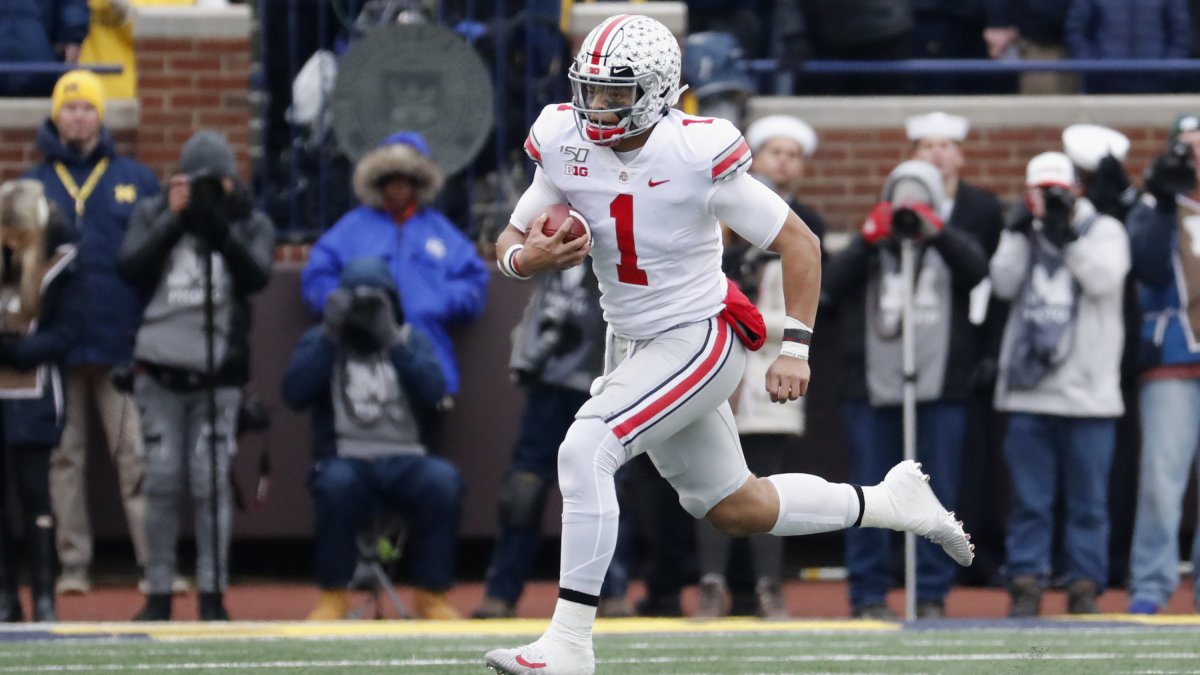A wise man once said, “The times they are a-changin'.” That has never been more apparent than in 2020. Uncertainty reigns supreme with college football this fall. The Ivy League was the first domino to fall, announcing last week that all fall sports are canceled. The Patriot League opted to push back the start of their fall athletics until at least Jan. 1. Among Power Five schools, both the Big Ten and Pac-12 have announced they will play conference only football schedules.
Outside of continuing to speculate on if, how and when a college football season is played, we can use some of our previous predictive models to answer a pressing question: Given the expectation that a limited/fragmented college football schedule plays at some point, which players are in position to forgo the 2020 season without seeing their draft stocks suffer significantly?
In this exercise, we are going to rely heavily on our college-to-pro projections, which utilize PFF college grades, snaps and performance, to project out how well we think a college player will perform in the NFL. We can use this process to understand where each draft prospect sits in relation to their peers at the NFL level. This isn’t to say that certain players won’t be overtaken by others who choose to play — this is simply an exercise in gauging who most likely remains a first-round talent if they don’t play a snap next year.
Quarterbacks
Justin Fields, Ohio State
Fields ranks seventh in big-time throw percentage among all quarterbacks in the PFF college era throughout the course of his career. Even more encouraging is his positive throw percentage, which is the fourth-best mark since 2014. He has been a better collegiate passer than Trevor Lawrence, according to PFF grading, which makes him barely edge out Lawrence in our college-to-pro projections.
Throughout the course of his rookie NFL contract, we project Fields to finish with .5 more wins above replacement (WAR) than Lawrence’s current projection. If forced to choose based on the information we have right now, Fields would edge out Lawrence for the No. 1 pick in next year's draft.



 © 2024 PFF - all rights reserved.
© 2024 PFF - all rights reserved.